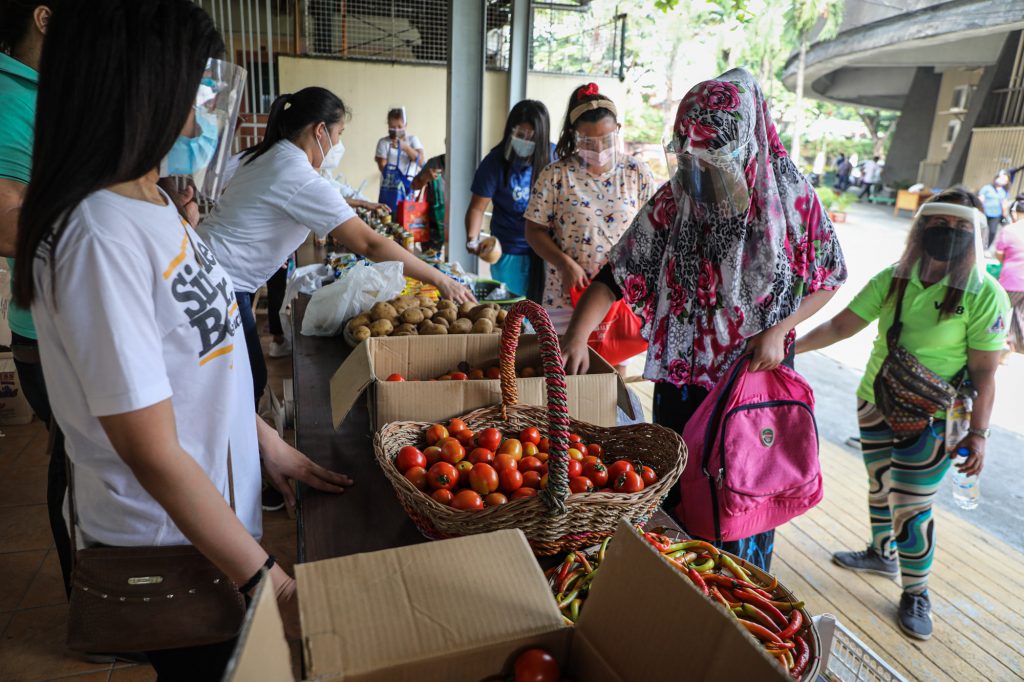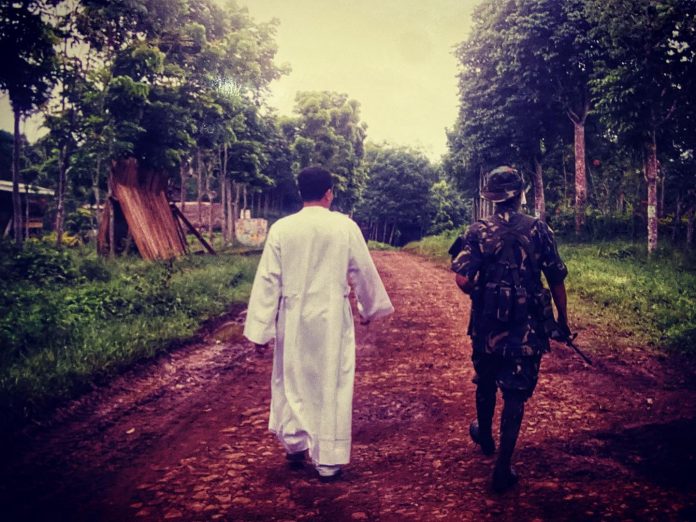“Let’s talk as friends,” said a missionary priest when I brought up the issue of the synodal process and its implications on the ground, especially in far-flung communities.
“I have been a priest for more than 20 years already, but I still don’t get what this so-called synodal process is,” he said. “How much more can the farmer or the catechist in the remote areas?”
The Vatican has announced that it is giving dioceses around the world more time to discuss with the faithful the various issues confronting Christian communities.
Local churches are encouraged to include “all the baptized” in the consultation process, not only churchgoers.
A handbook for dioceses said “special care should be taken to involve those persons who may risk being excluded,” such as women, refugees, migrants, people who live in poverty, and Catholics who rarely or never practice their faith.
Dioceses are given up to August 15, 2022, to complete the consultations and submit summaries for the next phase moving forward to the 2023 synod of bishops in Rome.
My missionary friend, however, warned that Church leaders — priests and bishops — should be more careful in talking about the process to the faithful.
“The moment a bishop or a priest wags his tongue on the pulpit and utters the word ‘synod’ and ‘synodal,’ the common person’s mind immediately repels it.”
“The word itself is too Rome-ish,” said my friend.
“And then what? You invite people to be active in the life of the Church while priests are not even going out to visit the sick for fear of getting infected with [the coronavirus disease]?”
“Such pretension! Such hypocrisy!”
He said “priests in the margins” would rather spend time working on projects that would help the poor than “waste time on the pretensions in the synod.”
He said the Second Plenary Council of the Philippines, or PCP II, in 1991 was more “realistic and mass-based compared to the current synodal process.”
The council that was held in Manila from Jan. 20, 1991, to Feb. 17, 1991, aimed to change the ways of the Church in the Philippines from the Second Vatican Council.

“This synod is nothing but icing in the cake for the Church as it rides its high horses,” said my friend. “The Church does not need a synod. It needs to come down to the dirt, to the ground.”
He said Pope Francis has “excellent intentions, but the real battleground is in the grassroots.”
My priest friend said the synodal process is “all talk without action.”
“Have you heard of a priest or a bishop who died of hunger? People are dying. The Church must create mechanisms to make people survive,” he said.
“But is it the role of a priest to help people survive physically?” I asked.
“We invite people to attend seminars and talks to solicit ideas how to change the Church or how to help it,” he said. “Are all those who attend the seminar have dinner ready when they arrive home?”
“Meanwhile, the priests, after the seminar and the talks, have bottles of beer to while their time. What hypocrisy!”
“Do you think the synodal process is an exercise in hypocrisy?” I asked.
“No amount of good intentions will uplift the poor other than the Church living radically God’s call to be in solidarity with the poor,” he said. “And that means being equally wounded like the poor.”
“Would you not allow the Holy Spirit to manifest its presence among the people? Why would you priests intervene in the day-to-day life of the poor?”
“The Holy Spirit resides with the people no doubt,” he said. “Someday, I wish the Church will go back to its pure and original form sans funfare and frills of the powers that be.”
“Isn’t your dialogue of life in the communities already part of the synodal process that is envisioned by Pope Francis?” I continued my questions.
“Our life down below is definitely part of what the pope has in mind, but not the frills and the processes of the institutional Church.”

He cited the call of some dioceses during the pandemic for its clergy to fast as something that is “disconnected” with the lives of the poor.
“What is the meaning of your fast if you don’t feed the poor? You don’t even see these parishes trying, even in whatever little way, to provide food for those most affected by the pandemic.”
“It’s a shame that ordinary poor workers are able to share what little they have to those in need while the priests were nowhere to be found,” he said.
“Then we invite the lay people to a consultation to ‘strengthen’ the Church?”
“Hello! The lay people are already ahead in living the charism of the Holy Spirit than the priests who are worried and are complaining about the low Sunday collections.”
“It’s really a shame that instead of the institutional Church, with all its resources, giving aid to the people during these difficult times, it’s the simple people who are instead feeding the priests in their convents.”
“We don’t need a synod,” he said.
“The people will always remain generous. We need a renewal of the clergy for them to refocus their priorities.”
“The post-COVID era will literally become a test of the Church’s survival skills,” he said.
“In real life, people in remote areas would go to the parish priest for all their needs, from asking advise on who to marry to asking for help to deliver a baby, a kitten, or a piglet, or a cow,” said my missionary friend.
“A missionary, a priest, should be multi-skilled,” he said. “A priest in remote places can also be a doctor, a farmer, a carpenter, a judge, even a policeman.”
Jose Torres Jr., is editor-at-large of LiCAS.news.









